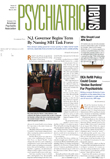Three-tier pharmacy formularies, adopted by many employers and health plans to control costs, appear to be associated with a significant decrease in the probability of using medications to treat children for attention-deficit/hyperactivity disorder (ADHD).
Copayment increases associated with the implementation of a three-tier formulary resulted in lower total ADHD medication spending by the employer, sizable increases in out-of-pocket expenditures for families of children with ADHD, and a significant decrease in the probability of using those medications, according to a study in the April Archives of General Psychiatry.
“There was no real effect on total spending, but simply a shift in who was paying the bill, with the plan's share going down,” lead author Haiden Huskamp, Ph.D., told Psychiatric News.
She is an associate professor of health economics in the department of health care policy at Harvard Medical School.
Three-tier formularies use copayment structures to encourage consumers to choose products that are cost-effective. Typically, the first tier consists of generic drugs, which have the lowest copayment; the second tier, which carries a higher copayment, consists of brand-name drugs preferred by the payer; and the third tier, which has the highest copayment, consists of brand-name drugs not preferred by the payer.
In the study, Huskamp and colleagues compared the effects on ADHD medication use and spending in one employer-sponsored plan with a three-tier formulary.
The intervention group consisted of 20,326 enrollees. A comparison group enrolled in the same managed care company consisted of 1,000 employer clients without a three-tier formulary.
The researchers found that the three-tier formulary resulted in a statistically significant decline in the rate of growth in the monthly predicted probability of using an ADHD medication for the intervention group compared with the comparison group. While rates of growth increased across the board, the rate was slower for the intervention group.
The health plan's monthly spending for ADHD medication users decreased by 43 percent compared with that of the comparison group, while users' monthly spending increased by 46 percent compared with that of the comparison group.
Huskamp said ADHD medication users who had been using the medications prior to implementation of the three-tier formulary were more likely than the comparison group to switch medications from one tier to another; however, change rates overall were low, she said. Moreover, prior users were not likely to discontinue use of their medications. Rather, the decrease in the rate of growth of monthly predicted probability of using an ADHD medication appeared to be related to potential new users being less likely to start using the medications.
Huskamp said that whether this represents a clinically appropriate decision cannot be discerned from the data.
Nearly two-thirds of all workers with a prescription drug plan have a three-tier formulary, she said.
“Clinicians have to be aware when they make prescribing decisions what the potential cost implications may be for patients,” she observed.
Arch Gen Psychiatry 2005 62 435
